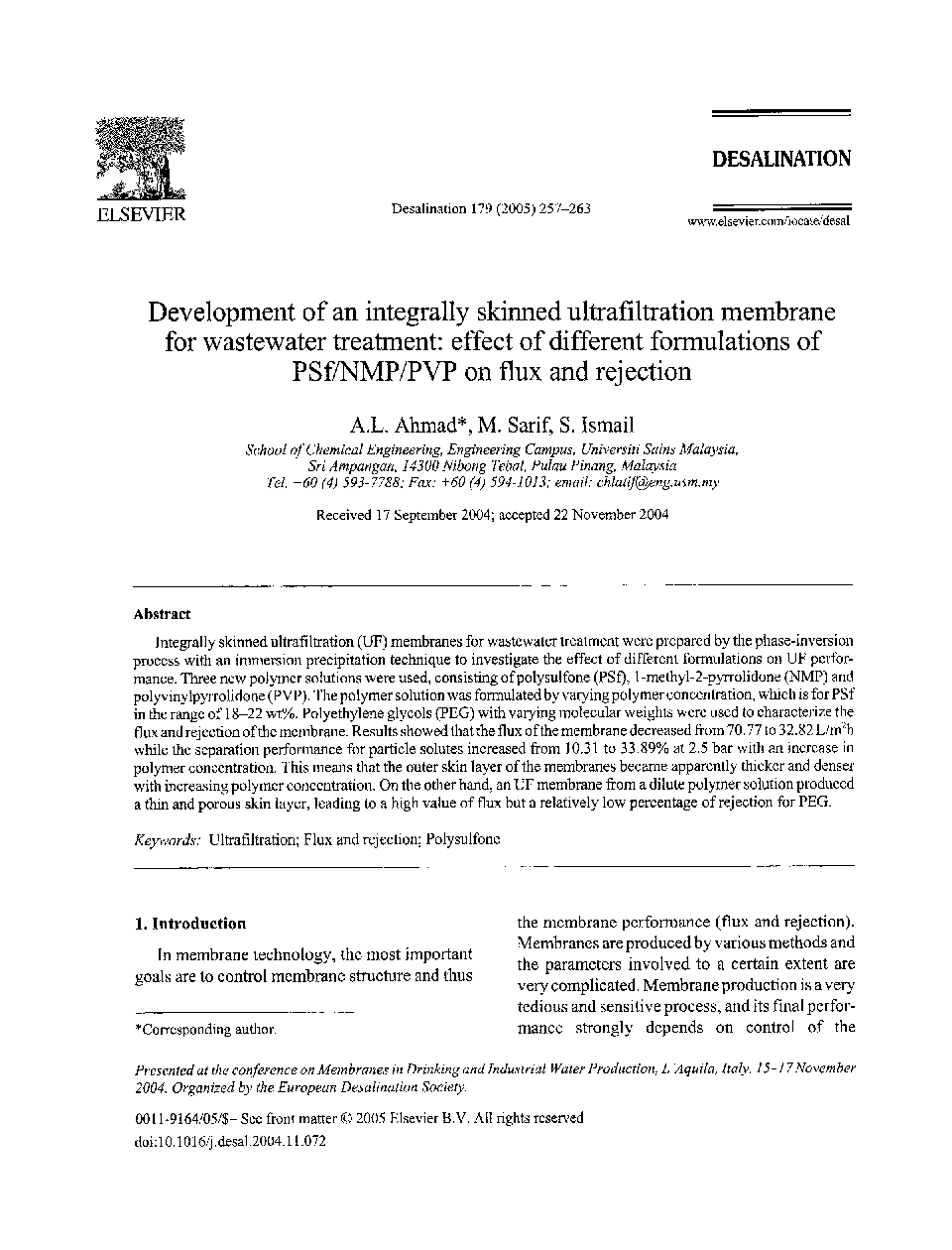| Article ID | Journal | Published Year | Pages | File Type |
|---|---|---|---|---|
| 9681109 | Desalination | 2005 | 7 Pages |
Abstract
Integrally skinned ultrafiltration (UF) membranes for wastewater treatment were prepared by the phase-inversion process with an immersion precipitation technique to investigate the effect of different formulations on UF performance. Three new polymer solutions were used, consisting of polysulfone (PSf), 1-methyl-2-pyrrolidone (NMP) and polyvinylpyrrolidone (PVP). The polymer solution was formulated by varying polymer concentration, which is for PSf in the range of 18-22 wt%. Polyethylene glycols (PEG) with varying molecular weights were used to characterize the flux and rejection of the membrane. Results showed that the flux of the membrane decreased from 70.77 to 32.82 L/m2h while the separation performance for particle solutes increased from 10.31 to 33.89% at 2.5 bar with an increase in polymer concentration. This means that the outer skin layer of the membranes became apparently thicker and denser with increasing polymer concentration. On the other hand, an UF membrane from a dilute polymer solution produced a thin and porous skin layer, leading to a high value of flux but a relatively low percentage of rejection for PEG.
Keywords
Related Topics
Physical Sciences and Engineering
Chemical Engineering
Filtration and Separation
Authors
A.L. Ahmad, M. Sarif, S. Ismail,
